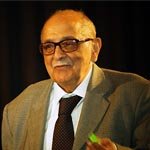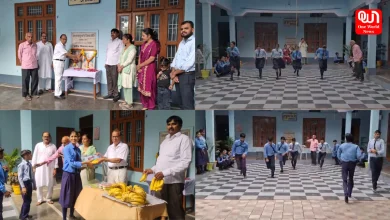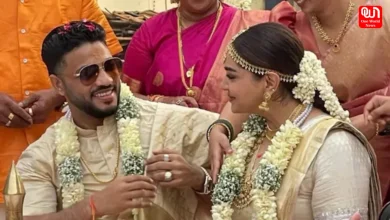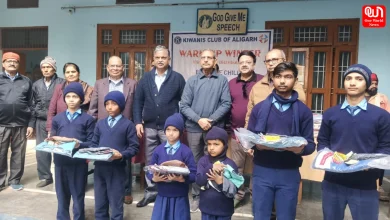It’s Time: We have had enough!

It’s Time: We have had enough!
How many times you felt uneasy approaching the police? How many times have you thought if only were you able to approach the police a major incident could have been avoided? What if people on the dockyards of Mumbai felt comfortable enough to call up the police when they saw strange men walking along their society on 26th November 2011? These are some of the question which are not really hard to answer. I would not be entirely wrong when I say this, that we are afraid of our police. Criminals are not but we, the citizens of this country, are.

Trying to come up with the answers of some of the earlier questions, Guild for Service, an organisation which has dedicated itself to the empowerment of women, held a discussion on the subject of Police Reforms. Dr. V. Mohini Giri chaired the discussion. Present at the helm were many esteemed personalities including Vrinda Grover, a lawyer and a human and women rights activist, Vimla Mehra, ex-DG of Tihar Jail, V.V. Rai, Senior Police officer, Annie Raja, Political Activist and the Guest of Honor was Mr. Fali Nariman, Senior Advocate and Indian Constitutional Jurist.

Guild for Service had held many consultations and got plethora of suggestions from various voices. The Commonwealth Human Rights Initiatives, which works towards practical realisation of human rights in Commonwealth countries, proposed some recommendations for effective policing after years of research and talking to the policy makers. There have been many voices across the countries for changes in the police policy and Supreme Court of India directive also addressed almost the same dimension. Despite the uniformity almost all the states have hesitated to implement the recommendations for issues that are obvious. If the recommendations were implemented it would make the police independent from the state and that makes the state uneasy.

There was a play which showed the insensitivity of Police while handling a rape case. The Police more often than not make the victim uneasy with absurd questions. They even accuse the victim of inviting the trouble.

Present at the occasion was ‘Nirbhaya’s’ mother, who appealed to the government and the concerned authority to sensitise the police so that other mishaps could be avoided. She said that if on 16th December 2012 the police would have arrived on time her daughter could have been saved. Some of the other victims of police insensitivity were also present. One of the ladies had suffered violence as her daughter went missing twice and she had received threat calls to retract the police complaint. They all shared their stories and appealed to take action against the perpetrators. Senior Advocate Fali Nariman then launched a Whistle which is a new initiative and is a token of empowerment of women.

The discussion started as Vrinda Grover presented some important points to ponder. She said that the Verma Committee highlighted the fact that violence against the women is a manifestation of growing inequality. She said that as a criminal lawyer she had realised that one of the area that is most wanting is the statement of the victim. It is in no way reflects the manner in which the incident took place. It is usually bereft of the trauma the pain. This robs the court of the opportunity to know the gravity of the case. She also said that there is a bias against women. It’s just not individual bias but institutional bias. There exists a prejudice which is prevalent across the legal system. She said police doesn’t comprehend what rape is. She said that we need to understand why violence against women is not seen as a crime. As long as it enjoys political patronage and social sanctions the shift is impossible.

Vimla Mehra then took to the stage and shared various steps Delhi Police is taking and has taken in the recent past to curb violence. She showed a presentation in which she argued that Delhi Police in recent times has done a lot. She said that Delhi Police has become more sensitive and has held many camps to train women in self defence. She further added that number of women coming out to complain has increased and that is a step in the right direction. Delhi Police has done some good work but it still needs to go a long way.
Annie Raja followed and said that violence against women is a social stigma and questioned why the system is so insensitive. Women need to be treated as equal citizens. A protectionist view is not a solution but empowering women is the way forward.
V.V. Rai also stressed upon gender sensitisation of police force. He said that there needs to be a accountability authority which can hold police officer accountable for actions. Cases of violence against women should only be handled by officers who hold a certificate in gender sensitisation. He also said that the laws which are made are only strengthening the state. The laws are not empowering women which should have been the case and that needs to be the case.
Fali Nariman concluded the event by expressing his views. He said that Pt. Jawaharlal Nehru believed women education was his biggest achievement. He believed that women education performs as a catalyst for social change but unfortunately that process is still in progress. He said that it is not laws which oppresses women but attitude of men towards women. India needs a reform in the mindset.
Picture Credits : Neel Kamal Pandey, OneWorldNews







